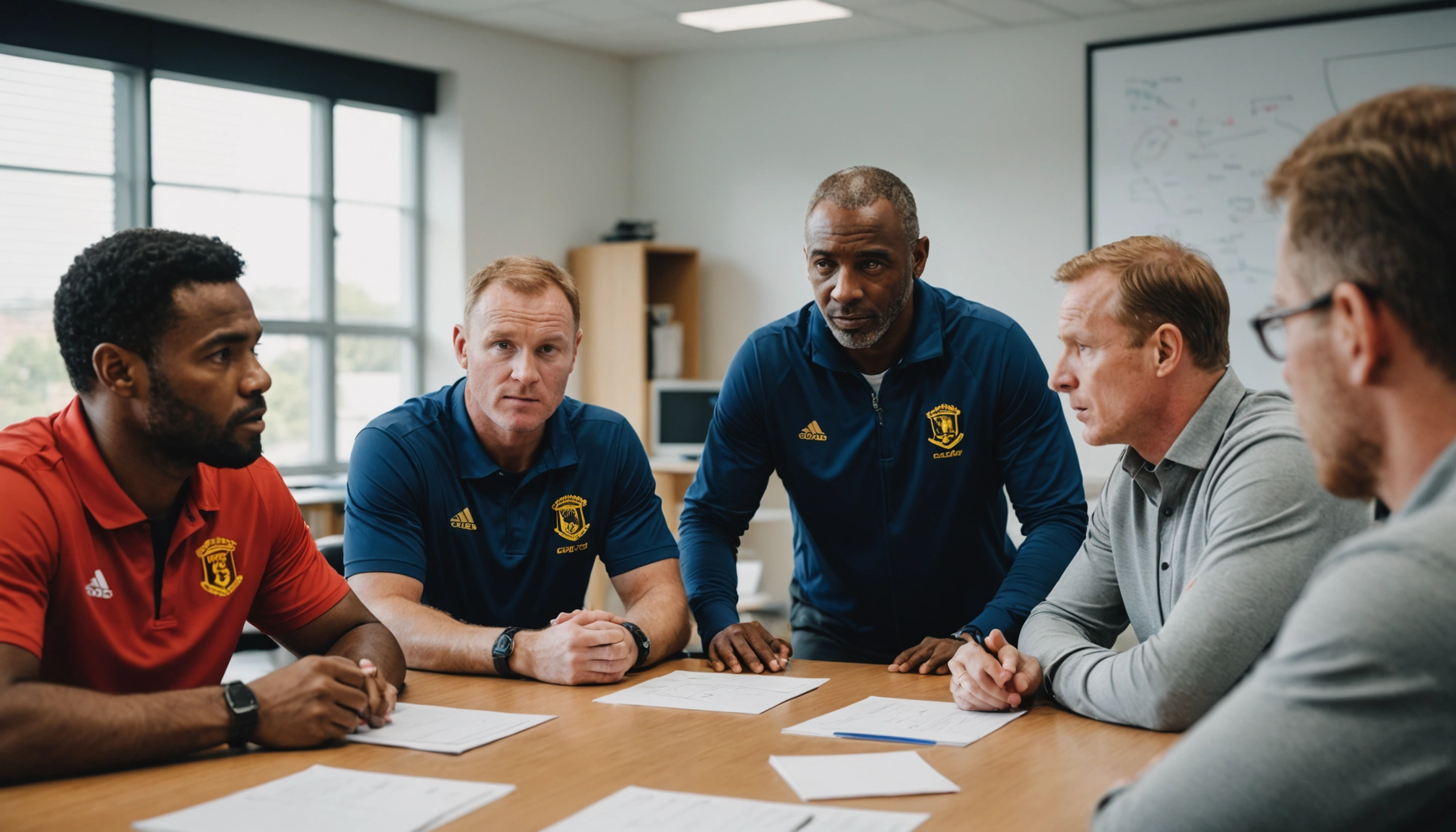Does The Rooney Rule Boost BAME Coaching Representation In Football?
Explore the Rooney Rule's impact on increasing BAME coaches in football. Discover challenges, successes, and what the future holds for diversity in UK football.

By Editorial
Introduction To The Rooney Rule And Its Purpose
In recent years, the conversation around racial equality within football coaching ranks has intensified. The Rooney Rule, originating from the NFL in 2003, mandates that clubs interview at least one Black, Asian, or minority ethnic (BAME) candidate for head coach and senior management vacancies. Its goal is clear: to increase diversity and representation in leadership roles. But does this scheme truly work, particularly within UK football?
Origins And Implementation Of The Rooney Rule
The Rooney Rule was first introduced by the National Football League (NFL) in the United States as a response to the severe underrepresentation of BAME individuals in coaching and executive roles. Initially, it showed promise with a rise from three to eight BAME head coaches between 2003 and 2011. However, since 2017, numbers have plateaued or declined, highlighting deeper systemic issues.
In England, both The Football Association (FA) and the English Football League (EFL) have adopted versions of the rule—albeit without the Premier League's endorsement. Despite this, BAME representation among managers remains low, with just five BAME managers across 91 clubs in the Premier League and EFL following Sol Campbell's departure from Southend.
Why Has Progress Been Limited Despite The Rule?
Unconscious Bias And Recruitment Practices
One critical barrier to progress is unconscious bias. Club owners and decision-makers often gravitate towards candidates who mirror their own backgrounds or familiar profiles. Professor N Jeremi Duru, counsel to the Fritz Pollard Alliance, explains this tendency to favour comfort over diversity during quick hiring decisions.
Moreover, many clubs recruit informally, relying heavily on private networks and personal relationships. This undermines the effectiveness of the Rooney Rule, as these informal processes often exclude BAME candidates from meaningful consideration.
Racial Stacking And The Coaching Pipeline
Historical factors, such as 'racial stacking'—the practice of steering BAME players away from strategic positions like quarterback—continue to influence coaching pipelines. Since coordinators and quarterbacks often transition into head coach roles, the lack of BAME representation in these positions reduces the pool of qualified minority candidates.
For example, between 2009 and 2018, 91% of offensive coordinators hired were white. Even highly qualified BAME assistants like Eric Bieniemy, who won a Super Bowl with the Kansas City Chiefs, have repeatedly been overlooked for head coach vacancies.
Lessons From The NFL And What The UK Can Learn
The NFL’s experience offers valuable insights for UK football. While initial enforcement of the Rooney Rule was strict—penalising teams for non-compliance—relaxation of these rules led to a decline in BAME hirings. For instance, the Oakland Raiders’ controversial 2018 head coach appointment, where the new coach was decided before interviewing BAME candidates, exposed loopholes in enforcement.
The NFL has since enhanced the rule to require two BAME interviews for head coach roles and one for coordinator positions, alongside inclusion of female candidates for senior jobs. Such stronger regulations, combined with transparent reporting, could benefit English football as well.
New Initiatives In UK Football To Promote BAME Representation
Despite challenges, recent initiatives show progress. The FA now mandates interviews with BAME candidates for all England coaching posts and has introduced BAME placements within youth squads. Additionally, the EFL’s BAME coaching scheme aims to improve pathways for minority coaches, though it lacks punitive measures for non-compliance.
Michael Johnson, a former professional player and current coach, has highlighted the importance of these schemes. After years of being overlooked, he now participates in England’s under-21 setup and aims to become a sporting director, advocating for diversity in club leadership boards.
His perspective emphasises how diverse leadership can broaden decision-making and foster inclusion. This aligns with the broader societal role of sport as a platform for political, social, and educational change.
Challenges That Remain And The Road Ahead
While the Rooney Rule and associated measures provide a framework, enforcement gaps and unconscious biases hamper their full potential. Without clear penalties or consistent data transparency, commitment from clubs can waver.
To truly turn the tide, football authorities in the UK might consider:
- Mandating transparent reporting on interview and hiring practices.
- Introducing sanctions for non-compliance with diversity rules.
- Expanding training for decision-makers on unconscious bias.
- Supporting mentorship and development programmes for BAME candidates.
Such steps would reinforce the Rooney Rule’s intent and encourage a culture shift within football’s hierarchy.
Conclusion: Beyond The Rooney Rule
The Rooney Rule is a meaningful step towards diversifying football coaching, but it is not a cure-all. Real change requires sustained effort, cultural shifts, and robust enforcement. As the UK football community continues to debate and implement diversity strategies, looking to successful case studies and addressing structural barriers remain key.
For readers interested in understanding the wide range of UK sports, including football and darts, and how they shape social narratives, see our exploration of top UK sports.
For further insights into how data and technology impact sports engagement, check out our article on data protection in sports polls and quizzes.
Related topics
Editorial
Sports expert at SportsScoop
Specialist in sports analysis and journalism
Related articles
Want to read more?
Explore our comprehensive collection of sports articles and analysis, or contact us for more information.



